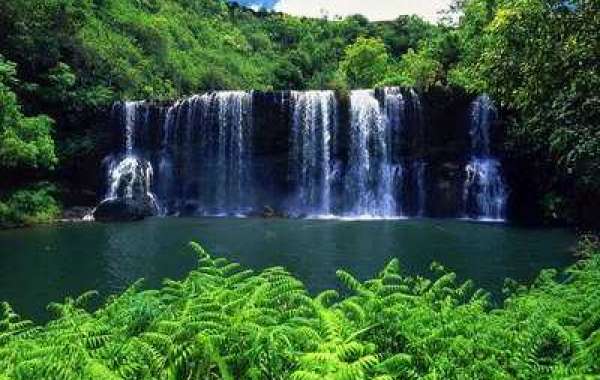Blocked drains are a common yet frustrating problem for homeowners and businesses. Not only do they disrupt daily routines, but they can also lead to costly repairs if left unaddressed. Understanding the causes of blocked drains and learning how to prevent them can save you time, money, and stress. If you’re dealing with persistent drainage issues, professional drain clearance services can help resolve the problem effectively.
What Causes Blocked Drains?
Blocked drains occur when something obstructs the normal flow of water through your pipes. These blockages can stem from various sources, ranging from everyday habits to natural wear and tear.
1. Fat, Oil, and Grease Build-Up
Pouring cooking fat, oil, or grease down the sink might seem harmless, but over time, these substances solidify and cling to the pipe walls. This accumulation narrows the pipes, restricting water flow and causing blockages.
2. Hair and Soap Scum
In bathrooms, hair and soap residue are major culprits. Hair clumps together and gets caught in the drain, while soap scum hardens, creating stubborn blockages.
3. Foreign Objects in the Pipes
Items like sanitary products, wipes, and even children’s toys can accidentally make their way into the drainage system, leading to significant clogs. Unlike toilet paper, these items don’t break down easily, exacerbating the problem.
4. Tree Root Intrusion
Tree roots naturally seek water and can infiltrate underground pipes through small cracks. Once inside, they grow and expand, blocking the pipes and causing severe drainage issues.
5. Heavy Rain and Storms
During heavy rainfall, debris like leaves, mud, and silt can wash into outdoor drains. This debris accumulates and creates blockages, especially if the drainage system isn’t maintained.
6. Aging or Damaged Pipes
Over time, pipes can deteriorate due to wear and tear, causing cracks, collapses, or misalignments. These structural issues often lead to blockages.
How Blocked Drains Affect Your Property
Blocked drains aren’t just inconvenient; they can also cause serious damage.
- Water Backflow: A blocked drain can lead to water backing up into your home, damaging floors and furniture.
- Health Risks: Stagnant water and waste promote bacteria growth, posing health risks to your household.
- Structural Damage: Long-term blockages can weaken your home’s foundation and walls, leading to costly repairs.
How to Prevent Blocked Drains
Taking preventative steps can help you avoid the hassle and expense of dealing with blocked drains.
1. Proper Disposal of Cooking Waste
Instead of pouring oil or grease down the sink, let it cool and dispose of it in the trash. You can also use a grease trap to catch fats before they enter your pipes.
2. Use Drain Covers
Install drain covers or strainers in sinks, showers, and bathtubs to catch hair, food particles, and other debris before they enter the pipes.
3. Flush Only Toilet Paper
Avoid flushing anything other than toilet paper down the toilet. Items like wet wipes, cotton balls, and sanitary products can easily block pipes.
4. Schedule Regular Drain Maintenance
Having your drains professionally cleaned and inspected on a regular basis can help identify and address minor issues before they escalate.
5. Monitor Outdoor Drains
Keep outdoor drains clear of leaves, dirt, and debris, especially during autumn or after heavy rains. Regular cleaning prevents clogs from forming.
6. Be Mindful of Landscaping
Avoid planting trees or shrubs near underground pipes. If you suspect tree roots are an issue, consult a professional to assess the situation.
DIY Drain Unblocking: What Works and What Doesn’t
Many people attempt to clear blocked drains themselves, but not all methods are effective—or safe.
Effective DIY Methods
- Boiling Water: Pouring boiling water down the drain can help dissolve grease and soap scum.
- Plunger: A plunger is great for minor blockages in sinks and toilets.
- Natural Cleaners: A mixture of baking soda and vinegar can break down small clogs naturally.
Methods to Avoid
- Chemical Drain Cleaners: These products can damage pipes and pose environmental hazards.
- Wire Hangers: Using makeshift tools can scratch or puncture your pipes.
If DIY methods fail, it’s best to call a professional.
The Role of Professional Drain Clearance
Professional drain clearance services offer several advantages over DIY methods.
- Advanced Tools: Professionals use specialized equipment like CCTV cameras and hydro jetting to locate and clear blockages efficiently.
- Thorough Solutions: They address the root cause of the problem, not just the symptoms.
- Expert Advice: Professionals can provide recommendations on how to prevent future issues.
Signs You Need Professional Help
Sometimes, it’s clear that a blocked drain requires professional intervention. Look out for these warning signs:
- Recurring Blockages: If the same drain keeps clogging, it’s time to call in experts.
- Unpleasant Odors: Persistent bad smells from your drains indicate a blockage.
- Slow Drainage: Water that takes forever to drain is a sign of a serious problem.
- Gurgling Noises: Strange sounds from your pipes often point to trapped air caused by a blockage.
Costs of Ignoring Blocked Drains
Ignoring a blocked drain can lead to more expensive problems down the line.
- Pipe Damage: Prolonged blockages can cause pipes to burst or collapse.
- Water Damage: Overflowing drains can ruin walls, floors, and furniture.
- Increased Costs: Delaying professional intervention often results in higher repair bills.
Environmentally Friendly Drain Maintenance
Keeping your drains clear doesn’t have to harm the environment.
- Eco-Friendly Cleaning: Use natural solutions like baking soda and vinegar instead of harsh chemicals.
- Water Conservation: Fix leaks promptly to avoid water waste.
- Proper Waste Disposal: Dispose of hazardous substances responsibly to protect the environment.
When to Call a Professional Service
If you’ve tried preventive measures and DIY solutions without success, it’s time to call in the professionals. They can quickly diagnose and fix the problem, ensuring your drainage system operates smoothly.
Conclusion
Blocked drains are a nuisance that can disrupt your daily life and harm your property if not addressed promptly. By understanding the common causes and taking preventative measures, you can keep your drainage system in top condition.









